The 2023 Advanced/Blue-level Marine Educator Training Program: A Complete Success
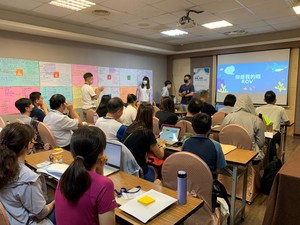
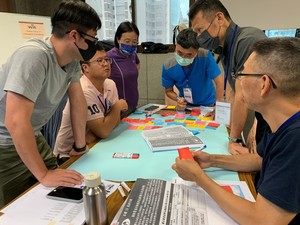
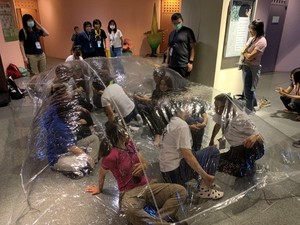
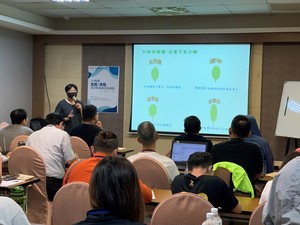

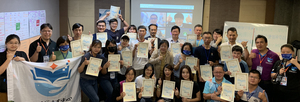
Project Assistant:CHANG,WEI-LUN
To provide experienced marine educators with opportunities for professional growth, the Taiwan Marine Education Center organizes a 5-day, 4-night advanced/blue-level marine educator training program every summer during the school break. This year, the program was held in Central Taiwan for the first time. The center introduced local coastal characteristics, used the resources of the National Museum of Natural Science, addressed climate change challenges that are globally pertinent, and incorporated various concepts (e.g., community leadership, event planning, and teaching plan development) to help participants to understand oceans and attract more people to the field of marine education.
The content of the training program focuses on bringing theory and practice together, inspiring marine educators to care about oceans and reflect on marine education. In the Marine Science course, they learned in-depth knowledge about the functions and ecosystems of the wetlands on Taiwan’s west coast; in the Marine Knowledge and Skill-expansion course, they were introduced to the relationships between the oyster and clam farming industries (a subject taught in fish-consumption education) and climate change; in the Marine Literacy course, they were exposed to the novel concept of blue carbon and given the opportunity to visit the Fangyuan Coast to observe wetlands and measured mangroves; in the Marine Humanities course, they were shown 30 years of videos and teaching materials archived by the National Museum of Natural Science, sparking their strong feelings about coastal change and climate issues, which guided them in the planning of marine education–related teaching activities; and in the Marine Social Science course, representatives from the offshore wind power industry and the Coastal Zone Management Act Review Committee were invited to discuss the effects of climate change on oceans and the carbon reduction or adaptation plans that can be developed.
The blue-level training program this year had a unique feature. That is, it incorporated “marine community leadership” as a training objective, encouraging students who were unfamiliar with each other to collaborate and reflect on how they can develop to become community leaders who can promote marine education. The Marine Activity Planning component, the final part of the program, introduced the 17 Sustainable Development Goals (SDGs) established by the United Nations, focusing on teaching the students to play a leadership role in developing marine education course activities and co-planning sustainable development goals. This component allowed the students to cocreate in groups and share with everyone their accomplishments during the results presentation stage.
“The end is only the beginning!” said Tsai Liang-ting, the section chief of the Taiwan Marine Education Center, who accompanied the students throughout the training program. Tsai encouraged the students to engage in planning marine education activities, guiding the development of marine education courses and teaching, and leading marine educators to expand their knowledge and skills, thereby fulfilling these students roles’ as advanced/blue-level marine educators. The Taiwan Marine Education Center will also continue to help marine educators to promote marine education.
If you wish to contribute to the efforts of the Taiwan Marine Education Center to promote marine education, you are welcome to participate in the marine educator training program and to access the training information provided by outdoor and marine education centers in various cities/counties. These programs and courses, which range from green-level (beginner level) to blue-level (advanced level), will help you to cultivate the ability to promote marine education and achieve the goal of fostering a love for the oceans among the entire Taiwanese population!

